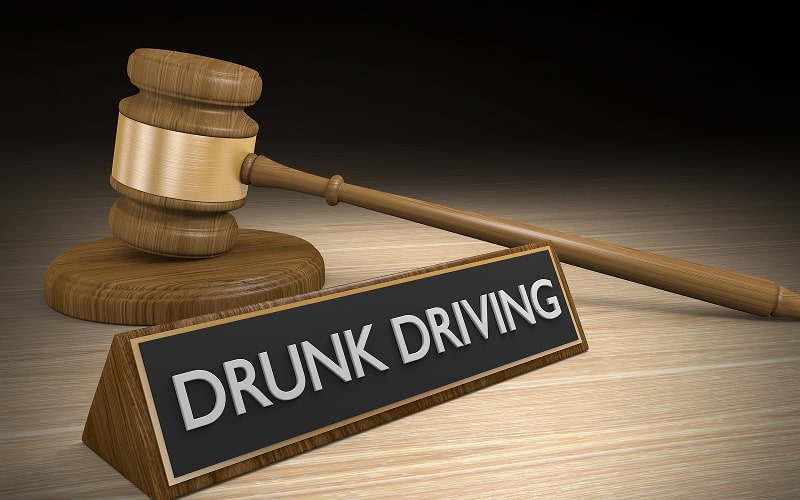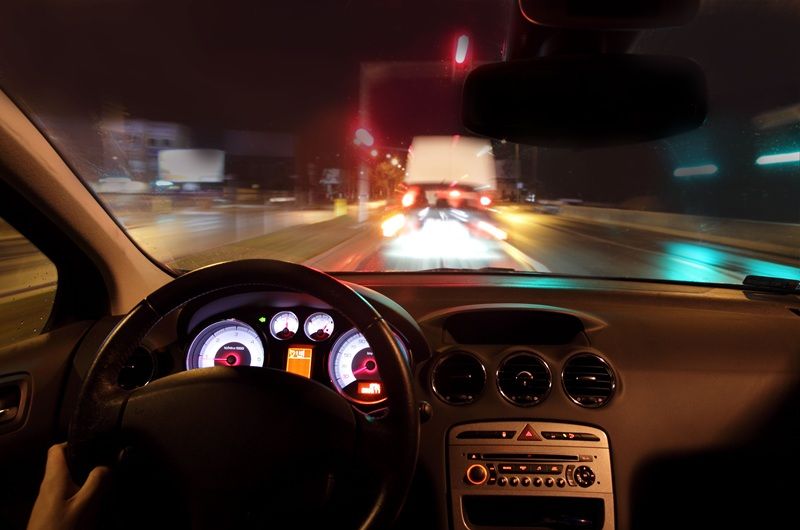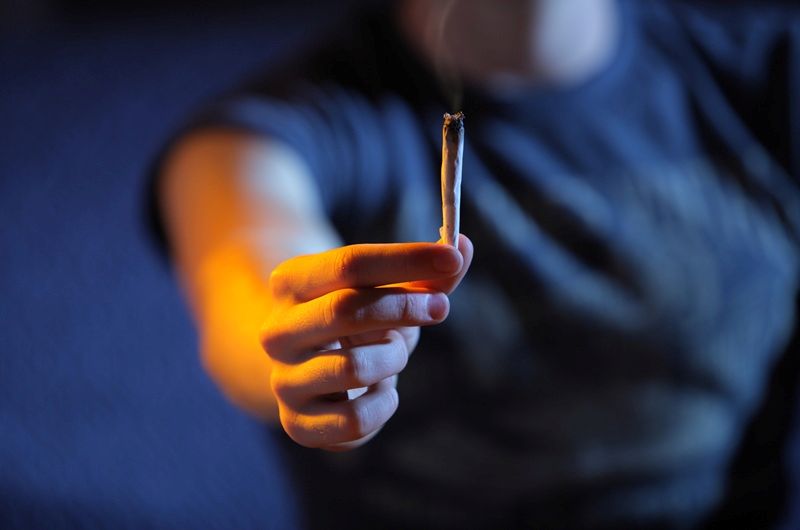Driving Under the Influence (DUI) offenses are more common than many realize, but that doesn’t make them any less severe. Drunk and drugged driving charges can affect your job, license, and future, making it critical to understand what happens after a stop and arrest. The choices you make in these moments can significantly impact your case.
This article guides you through each stage of a DUI stop and explores your legal options. It also highlights potential police errors that could strengthen your defense. If you or someone you know is facing a DUI charge, being informed can help you confidently navigate the situation.

What Happens During A DUI Stop In Virginia?
Police officers may stop drivers for suspected DUI based on speeding, swerving, or braking erratically. Even minor infractions, like a broken taillight, can lead to a stop if the officer suspects impairment. When pulled over, you must provide your license and registration, but beyond that, you have the right to remain silent.
Officers ask where you were before the stop or if you consumed alcohol to gather evidence. You have the right to refuse to answer politely but firmly. Stay calm and keep your hands visible. Reaching suddenly or acting nervous can raise suspicion. Avoid arguing, as it may escalate the situation.
Additionally, officers assess your behavior, speech, and appearance to determine impairment and the need for further evaluation. If an officer asks you to step out of the vehicle, comply, as refusing may be seen as resisting.
Once outside, you may be asked to perform specific physical tests to assess your sobriety. Understanding what comes next can help you decide how to respond.
How Do Field Sobriety Tests Work?
Field sobriety tests help officers assess a driver’s coordination, balance, and ability to follow instructions. While designed to detect signs of impairment, these tests are not foolproof and can be affected by factors unrelated to alcohol or drugs. The standardized tests include:
- Horizontal Gaze Nystagmus (HGN): Officers ask you to follow a small object, like a pen or flashlight while tracking your eye movement. Involuntary jerking of the eyes can indicate impairment, but medical conditions, fatigue, or certain medications can cause similar effects.
- Walk-and-Turn: You must walk heel-to-toe along a straight line, turn, and return the same way. Officers look for signs like stepping off the line or struggling to follow directions. However, uneven pavement, improper footwear, or anxiety can also lead to mistakes.
- One-Leg Stand: You must stand on one foot while counting aloud. Swaying, hopping, or putting your foot down may be signs of impairment. Other factors, such as inner ear issues or nervousness, can also affect balance.
These tests are voluntary in Virginia, and officers cannot force you to take them. However, even if you refuse, an officer may proceed with the investigation based on other observations. They could request a breath or blood test if they suspect impairment and arrest you for DUI.
What Are Your Rights In Breath & Blood Tests?
Virginia’s implied consent law requires that drivers agree to chemical testing if they are arrested for DUI. However, not all tests are the same, and refusing them has different consequences.
One of the most common methods used to determine impairment is a breath test, which measures Blood Alcohol Concentration (BAC) using a breath sample. There are two main types:
- Preliminary Breath Test (PBT): This handheld device is used roadside before an arrest. Officers use the results to justify an arrest. However, the device is not always reliable, as improper calibration, mouth alcohol, or medical conditions can lead to false readings.
- Evidentiary Breath Test (EBT): Conducted at the police station after an arrest, this test provides official BAC results. Unlike the PBT, it is mandatory under implied consent laws. Refusing an EBT results in an automatic one-year license suspension for the first offense.
In some cases, police may request a blood test instead. This is usually done when a breath test is unavailable or if drug impairment is suspected. Gaining insights into the differences between breath and blood tests can impact your case, especially if arrested.
What Should You Expect After A DUI Arrest?
If an officer arrests you for DUI, they take you into custody and transport you to the police station for booking. This process includes being fingerprinted and photographed for a mugshot.
Your personal belongings are confiscated and held until your release. You may also be placed in a holding cell until bail is set or a magistrate decides on your release conditions.
When arrested, you can remain silent and request a lawyer. Officers may try to ask questions upon arrest, but you are not required to answer. Statements made while in custody may be used as evidence, so staying quiet can help protect your legal rights.
Release conditions depend on the circumstances of your case. Some drivers are released on their recognizance, while others must post bail. Bail amounts vary based on prior offenses, the severity of the charge, and whether the judge considers you a flight risk.
Some individuals may also face travel restrictions or alcohol monitoring as part of their bail terms. After release, reviewing the details of your arrest is essential. Any errors made by police during the stop, testing, or booking could impact the outcome of your case.
How Can A Lawyer Defend You?
Police officers must follow strict legal procedures when making a DUI arrest. A skilled defense lawyer can assess if they fail to follow the law, weakening the case against you. A careful review of the details may reveal violations that work in your favor.
- Lack of Reasonable Suspicion for the Stop: Officers need a valid reason to pull you over. The case may be challenged if they stop you without clear evidence of a traffic violation or probable cause.
- Improper Administration of Tests: Field sobriety and breath tests must follow strict guidelines. If an officer gives incorrect instructions, uses faulty equipment, or fails to document steps correctly, the results may be unreliable.
- Failure to Read Miranda Rights: If police question you after arrest without informing you of your rights, your statements may be ruled inadmissible in court.
- Mishandling Evidence: Blood and breath samples must be stored correctly. The results may not hold up in court if the evidence is lost, contaminated, or mishandled.
Even small mistakes by law enforcement can change the outcome of a case. Identifying procedural errors can significantly affect your defense and may be the key to fighting your DUI charge.
Frequently Asked Questions About DUI Charges
Drivers facing a DUI charge may have many concerns, especially given Virginia’s strict DUI laws. Here are answers to common legal and practical questions to help you make more informed decisions.
How Long Does A DUI Stay On Your Record?
A DUI conviction remains on your criminal record permanently and cannot be expunged. It also stays on your driving record for 11 years, affecting insurance rates and potential penalties for future offenses. The long-term impact makes it essential to fight the charges whenever possible.
Can A DUI Charge Be Reduced Or Dismissed?
Depending on the circumstances, a lawyer may challenge evidence, question testing procedures, or negotiate for lesser charges. Occasionally, issues like an unlawful traffic stop or faulty breathalyzer can lead to a dismissal. Plea deals, such as reducing a DUI to reckless driving, may also be possible.
Will You Lose Your License Immediately After Arrest?
Virginia law suspends an administrative license upon arrest, even before a conviction. A first offense results in a seven-day suspension, while repeat offenses lead to longer suspensions. You may challenge this suspension in court, but timing is critical.
Understanding the consequences of a DUI charge is the first step in protecting yourself. Having the proper legal defense can significantly influence how your case unfolds.
How Does Fairfax County Criminal Attorneys Safeguard Your Rights?

The legal system can be unforgiving, especially when dealing with strict DUI laws and severe penalties. Fairfax County Criminal Attorneys steps in so a mistake doesn’t have to define your future. We understand that every case is different, and we focus on finding the weaknesses in the prosecution’s argument.
Whether it’s an unlawful stop, faulty test results, or procedural errors, we know how to challenge the evidence against you. Our approach prioritizes strategy and preparation. We review police reports, video footage, and breathalyzer calibration records to identify errors that may benefit your case.
If negotiations are an option, we pursue reduced charges or alternative sentencing to lessen the impact on your life. When a courtroom defense is necessary, we aggressively advocate for you. The sooner we get involved, the more opportunities we have to protect your future.
A DUI arrest is severe, but it doesn’t mean an automatic conviction. Knowing your rights at every stage during the stop, testing, and arrest can significantly impact your case. Police mistakes, improper testing, and violations of legal procedures may provide opportunities for dismissal or reduced charges.
At Fairfax County Criminal Attorneys, we work to build a strong defense that challenges weak evidence and procedural errors. Our team aims to defend your rights and help you progress with favorable outcomes. Proper legal defense can make all the difference in fighting a DUI charge.




